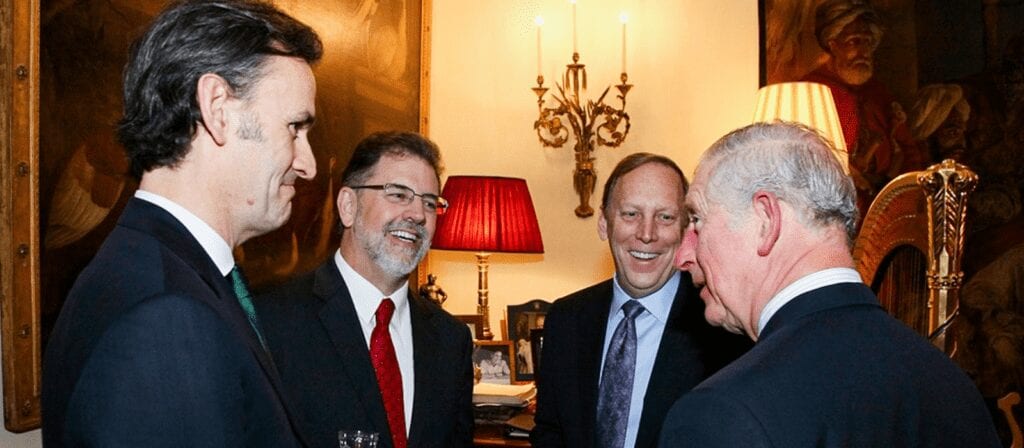“There is no planet B” was a widely used slogan in the run up to the COP 21 United Nations (UN) Climate Change Conference in Paris in 2015. The slogan was aimed at focusing the minds of those in governments around the world on their ever-stretched public purses and budgets and on the need to act on climate change and its potential consequences. At the Conference almost 200 countries agreed to cut carbon emissions to ‘well below’ 2 degrees Celsius above preindustrial levels and to pursue efforts to keep them to 1.5 degrees to prevent dangerous climate change.
Scientists agree unequivocally that the world is warming. This creates climate change with disastrous results which include more severe droughts and heat waves; stronger and more intense hurricanes; sea level rises and a fall in sea ice volumes, as seen in the Arctic where there has been a 40% fall since 1979 (1).
Set these consequential events alongside a reduction in crop yields; population migration from coastal areas when, at the same time, the world population is growing at 80 million people per year; and where the UN predicts the world will need 30% more water, 50% more energy and 50% more food by 2030; and you begin to understand the seriousness of our global predicament.
In the words of Sean Kidney, CEO and Co-founder, Climate Bonds Initiative: “…the world has five, maybe ten years to fix things. Don’t walk. Run.”
The exact timing and severity of the physical effects of climate change are difficult to estimate and this is one of the reasons why the Financial Stability Board (FSB) identified the need for better information to support informed investment. For example, organisations that invest in activities that may not be viable in the longer-term, for example oil, coal or natural gas, could be less resilient in the transition to a lower-carbon economy and, as a result, their investors will likely experience lower returns unless real change is made.
Additionally, for the markets and investors there is the potential that present valuations do not adequately factor in climate-related risks due to the lack of information on how organisations are preparing for a low-carbon economy.
The threat of ‘stranded assets,’ those assets that suffer unanticipated or premature write-downs, is a very real reality for many organisations.
In April 2018, Mark Carney, Governor of the Bank of England, remarked on three main effects of climate change, in a speech given by him at the International Climate Risk Conference for Supervisors, Amsterdam:
- Physical risks
- Liability risks
- Transition risks – essentially, the risk that can arise through a sudden and disorderly adjustment to a low-carbon economy, and the most challenging risk of all.
Many organisations incorrectly perceive the implications of climate change to be only long-term and not necessarily relevant to the decisions made today. Indeed, in the words of Carney “climate change is a tragedy on the horizon which imposes a cost on future generations that the current one has no direct incentive to fix”.
Paradoxically, too rapid a movement towards a low-carbon economy could materially damage financial stability. It is for this reason that we need an orderly transition, driven by accurate timely information, which identifies the risks and opportunities that companies face in respect of climate change. This will help investors understand the related climate material risks and opportunities moving forward and allocate their capital resources in an efficient and profitable manner.
Better information disclosed to investors will help them engage and understand the related material risks and opportunities. There is undoubtedly growing pressure driven by the investor community, led by companies like Blackrock, Vanguard and Aviva, calling on their portfolio holdings to improve the quality of their disclosure companies and this is where the FSB’s Task Force on Climate-related Financial Disclosures (TCFD) recommendations come in.
In November 2017, in light of these developments, Shaun Tarbuck, Chief Executive of ICMIF and Steve Leicester, CFO, attended an Accounting for Sustainability (A4S) Summit at St. James’s Palace in London, where A4S launched collective statements of support from the CFO, investor and accounting communities, publicly endorsing the recommendations of the TCFD. The event was attended by The Prince of Wales who originally set up A4S in 2004 to make sustainable decision-making “business as usual”.
The TCFD has developed four widely-adoptable recommendations on climate-related financial disclosures.
Broadly, these can be split into:
- Governance –to describe the board’s oversight of climate-related risks and opportunities.
- Strategy – to disclose the climate-related risks and opportunities the organisation has identified over the short-, medium- and long-term, taking into account scenario analysis.
- Risk management – to describe how the organisation identifies climate-related risks.
- Metrics and targets – to describe the metrics used to assess climate-related risks and opportunities.
Whilst this is currently a voluntary disclosure, the recommendation is that the disclosures are included in the annual financial filings. Such information will help encourage consistent, reliable and clear disclosures on climate-related financial risk. Thereby providing greater transparency; making markets more efficient; and economies more stable and resilient in the long-term.
The insurance sector, of course, has been facing the physical challenge of climate risk for many years now and has had to carefully adapt its risk-based modelling techniques to manage these threats over the years.
ICMIF is now working with A4S to encourage member organisations to engage in the direction and implementation of the TCFD recommendations as they becomes mainstream in financial reporting for all businesses.
In its work to support adoption of the TCFD recommendations, A4S is running a series of workshops across the globe, designed for finance teams to explore the practical steps needed for implementation of the recommendations. Steve Leicester attended the first TCFD workshop in March 2018 in London, joining 40 other finance representatives in sharing experiences and discussing the practical steps – and solutions to overcome barriers – to adopting the recommendations. More details about the workshops including a summation of these practical steps can be found at: www.accountingforsustainability.org/tcfd
Representatives from two ICMIF member organisations, The Co-operators from Canada (Bruce West, former CFO) and Securian from the USA (Warren Zaccaro, CFO), met with A4S and His Royal Highness for a dinner in February this year, and both organisations are showing real signs of leadership in this field. A representative from Zenkyoren in Japan (Hiroko Kowada, International Affairs, and Executive Secretary of the ICMIF Asia and Oceania Association) also attended an A4S event in Tokyo in March as the profile of the work continues to rise.
ICMIF recognises that the planet is ‘under our watch’ and we all have a responsibility as stewards to leave a healthy world for generations to come. This is in line with our cooperative and mutual values and we all have a part to play, however big, however small. Indeed, as a Federation that represents its members worldwide we have deeply ingrained values of social responsibility and caring for others carved into our ethos.
Change must come and acting now will mean we leave a future that is safe for our children and children’s children.
After all what could be more important than leaving the planet in a better state for future generations to come?
(1) USA Today 2 April 2018






